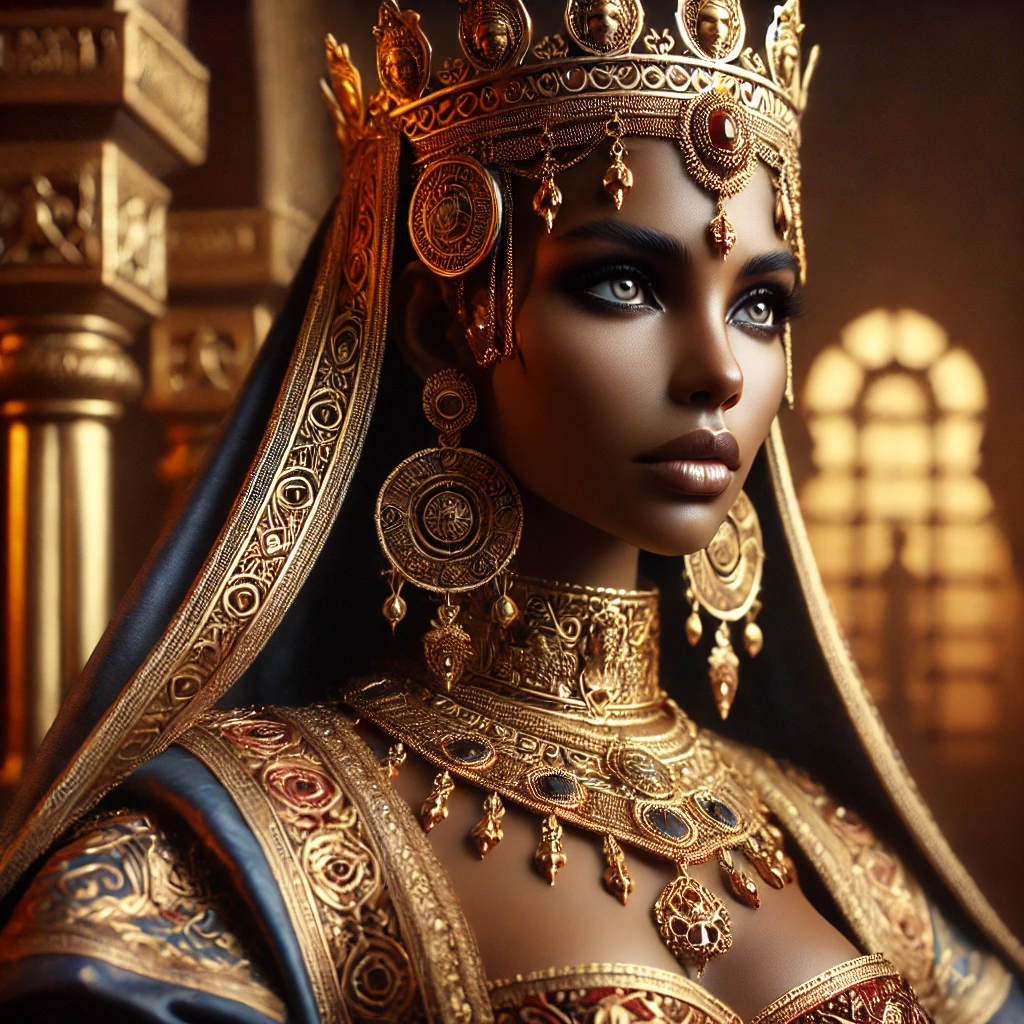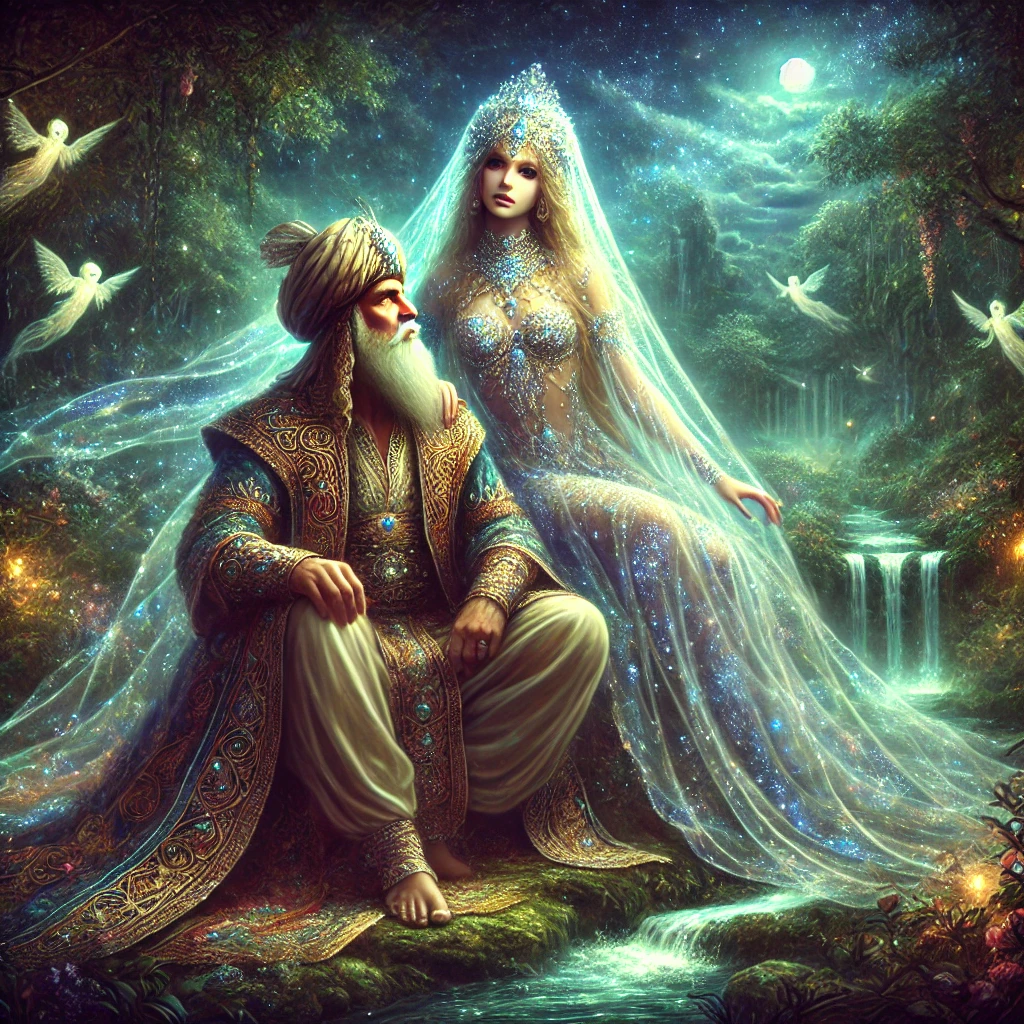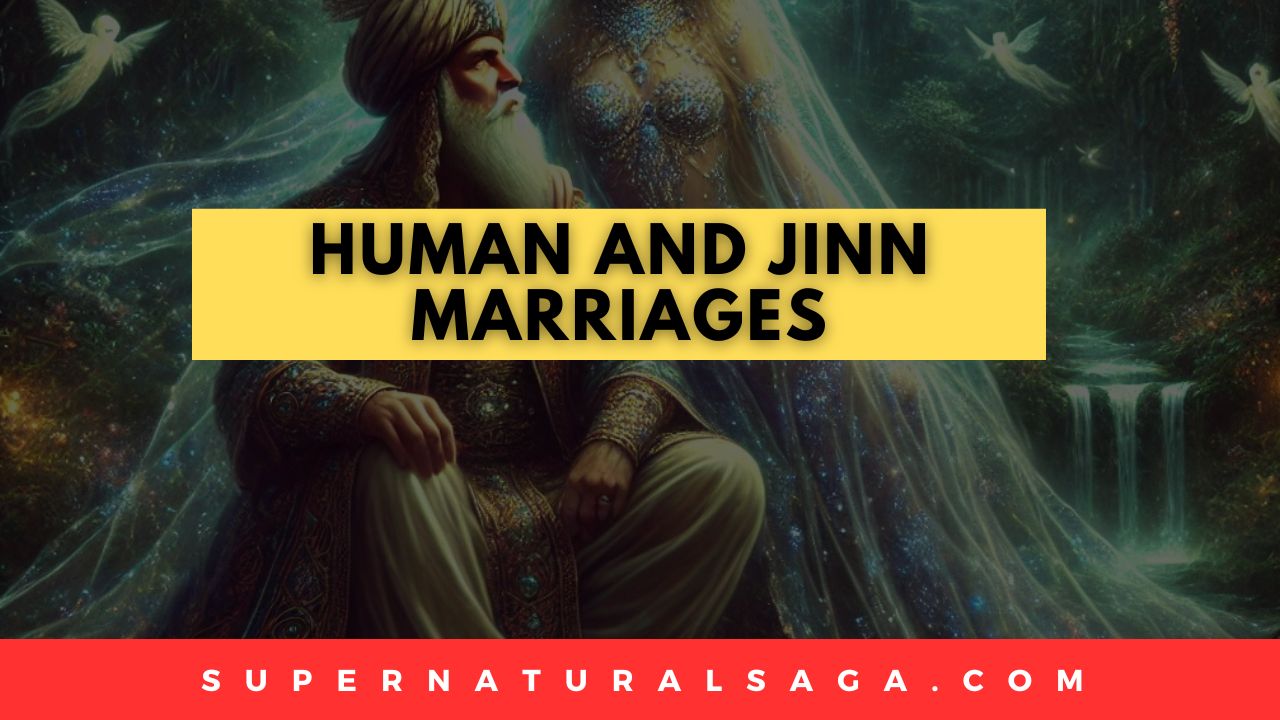Few topics in Islamic history and theology have generated as much scholarly discussion and cultural intrigue as the possibility of marriage between humans and jinn.
Let’s explore this fascinating subject through the lens of Islamic scholarship and examine why it remains a matter of theological debate.
The Nature of Jinn according to Islam
Before we can understand the complexities of jinn-human marriages, we must first comprehend what jinns are according to Islamic teachings.
The Quran tells us that jinn was created from “scorching fire” (مَارِجٍ مِنْ نَارٍ), predating human creation. Unlike humans, who were formed from clay, jinns possess remarkable abilities, including invisibility to human eyes and the power to change forms.
A fascinating hadith narrated by Abi Tha’labah al-Khusyaniy reveals that jinns exist in three distinct categories. Some have wings and soar through the air, others take the form of creatures like snakes and dogs, while a third group leads a nomadic lifestyle similar to human Bedouins.
This diversity in their nature adds layers of complexity to the question of their potential marriage to humans.
You can read more about How Jinn Are Created In The Quran to understand it deeply.
Religious Responsibilities of Jinn
An important aspect often overlooked in discussions about jinn-human relationships is that jinns, like humans, are considered mukallaf (religiously accountable) beings.
The Quran clearly states, “And I did not create the jinn and mankind except to worship Me.”
This shared spiritual responsibility creates an interesting parallel between the two species, as both are subject to Islamic laws and will face judgment in the hereafter.
The Debate on Human and Jinn Marriage
The permissibility of marriages between humans and jinn has sparked intense debate among Islamic scholars, leading to three main perspectives:
- The first group, including prominent scholars like Imam Ahmad and Imam al-Zuhri, considered such marriages possible and permissible under certain conditions. They based their argument on historical precedents and the shared religious accountability of both species.
- However, the majority of Shafi’i and Hanafi scholars, including al-Khatib al-Syarbini, strongly opposed such unions. They pointed to the Quranic verse: “And Allah has made for you from yourselves mates,” interpreting it as divine guidance for same-species marriages.
- A third group of scholars took a more cautious approach, neither explicitly permitting nor prohibiting such marriages but expressing serious reservations about their practicality and wisdom.
Why it is Discouraged for Jinn-Human Marriage
Contemporary Islamic scholars generally advise against pursuing marriages with jinn for several compelling reasons:
First, the primary purposes of marriage in Islam – tranquility, love, and companionship – become extremely difficult to achieve when the spouses are from fundamentally different species.
The Quran emphasizes this when it states, “And of His signs is that He created for you from yourselves mates that you may find tranquility in them.”
Second, practical considerations make such unions problematic. How can legal requirements like proper documentation and witnesses be fulfilled when one spouse is invisible to human eyes?
Questions of inheritance, child custody, and other legal rights become nearly impossible to address within existing Islamic legal frameworks.
Third, there are serious concerns about potential deception and harm.
As the Quran tells us, jinns can see us while we cannot see them: “Indeed, he sees you, he and his tribe, from where you do not see them.” This fundamental imbalance creates opportunities for manipulation and fraud.
Jinn and Human Marriage Story
There were many documents as well as tales that show the marriage and relationship between humans and Jinn. But these two stories are one of the most mentioned and have been narrated for a long time in history for debate and examples.
1. The Story of Bilqis – The Queen of Sheba

One of the most famous accounts comes from Islamic historical texts regarding Bilqis, the Queen of Sheba.
According to some historical narratives, Bilqis herself was born from an interesting union – her father was a human king named Sharahil, while her mother was said to be a jinni named Bal’amah, daughter of Shisan.
The story of how this marriage came to be is particularly interesting.
According to the accounts mentioned in Qurtubi’s commentary, Bilqis’s father, who was quite arrogant, had declared that no human woman was worthy of being his match. He reportedly said, “No one from you is a match for me; hence I will not marry. It is because I do not like marrying outside my matching clan.” As a result of this pride, he ended up marrying a jinni woman – perhaps a divine lesson in humility.
What makes this story even more intriguing is that Bilqis went on to become a powerful queen, suggesting that children from such unions could indeed achieve great things. However, it’s worth noting that in Islamic law, she was considered human since lineage follows the father.
The Tale of Hassan of Basra

Another well-known story from Middle Eastern folklore tells of Hassan of Basra, who married a jinn princess. This tale, while not considered historically authentic, provides interesting insights into how such relationships were imagined in cultural narratives.
The story tells of numerous challenges the couple faced due to their different natures and the complications of living between two worlds.
Social and Cultural Implications of Jinn and Human Marriages
The belief in jinn-human marriages has sometimes led to problematic situations in Muslim societies. Some people have used claims of jinn marriage to cover illicit relationships, while others have fallen victim to fraudulent spiritual practitioners claiming to arrange such marriages.
Moreover, the social stigma and family conflicts that would arise from claiming a jinn spouse can lead to isolation and psychological distress for the individual involved.
This social dimension adds another layer of complexity to an already challenging situation.
Many historical accounts of jinn-human marriages serve as cautionary tales. These stories often end with:
- The human spouse discovers the true nature of their partner and becomes frightened
- The jinn spouse disappears suddenly, leaving the human partner in distress
- Children from such unions face unique challenges due to their mixed heritage
- The human spouse suffering from mental or physical ailments attributed to the supernatural union
A Balanced Approach for Modern Times
While acknowledging the existence of jinn as part of Islamic belief, it’s crucial to approach this topic with wisdom and caution.
The overwhelming majority of contemporary scholars emphasize focusing on establishing healthy marriages within the human community rather than pursuing supernatural unions.
For those who believe they are experiencing supernatural encounters or attractions, Islamic scholars recommend:
- Seeking guidance from qualified religious scholars
- Maintaining regular Islamic spiritual practices
- Considering psychological and emotional factors
- Building strong connections within the human community
Conclusion
While the topic of jinn-human marriage holds historical and theological interest, the practical, legal, and social complications make such unions highly problematic in both religious and practical terms.
The wisdom of Islamic guidance in encouraging marriages between compatible human partners becomes evident when considering all aspects of this complex issue.
The focus should remain on establishing healthy, harmonious marriages between humans while maintaining appropriate boundaries with the supernatural world.
After all, as the Quran reminds us, Allah has created suitable mates for us from our own kind – a divine wisdom that becomes increasingly apparent as we examine this fascinating topic.
Remember, while jinns are real in Islamic theology, their realm is distinct from ours for good reason. The best path forward is to seek marriage partners among our fellow humans while maintaining our belief in and respect for the unseen world that Allah has created.

